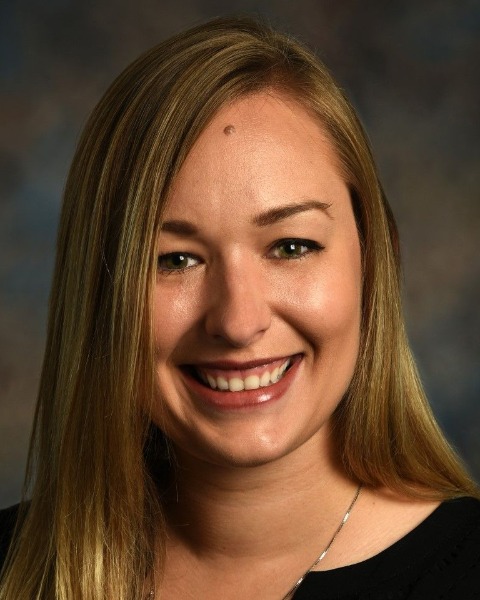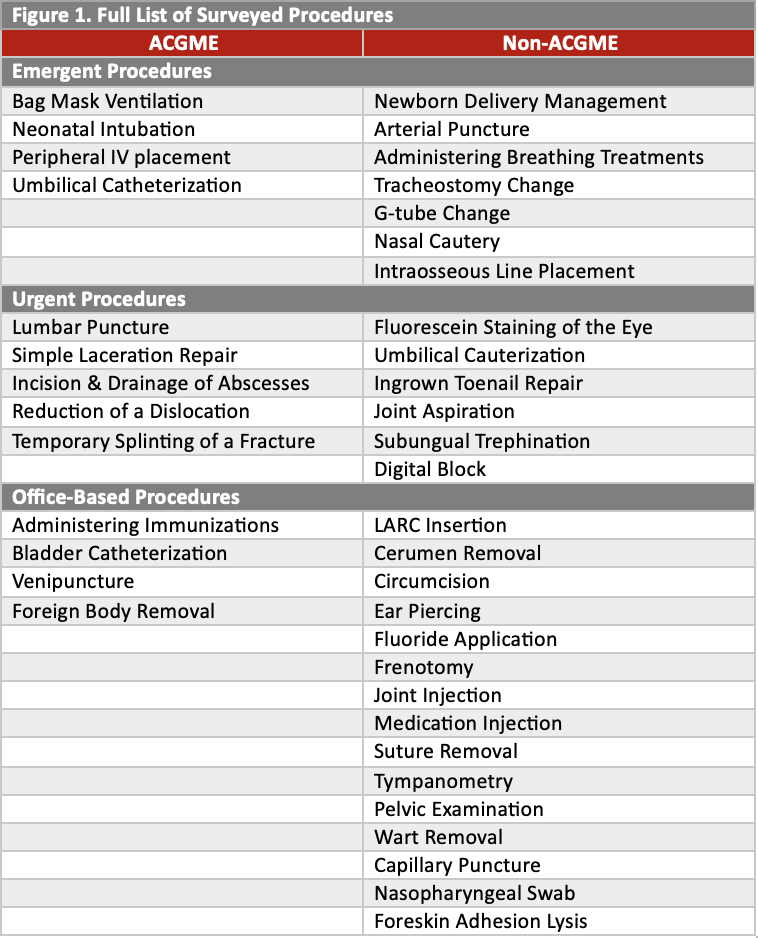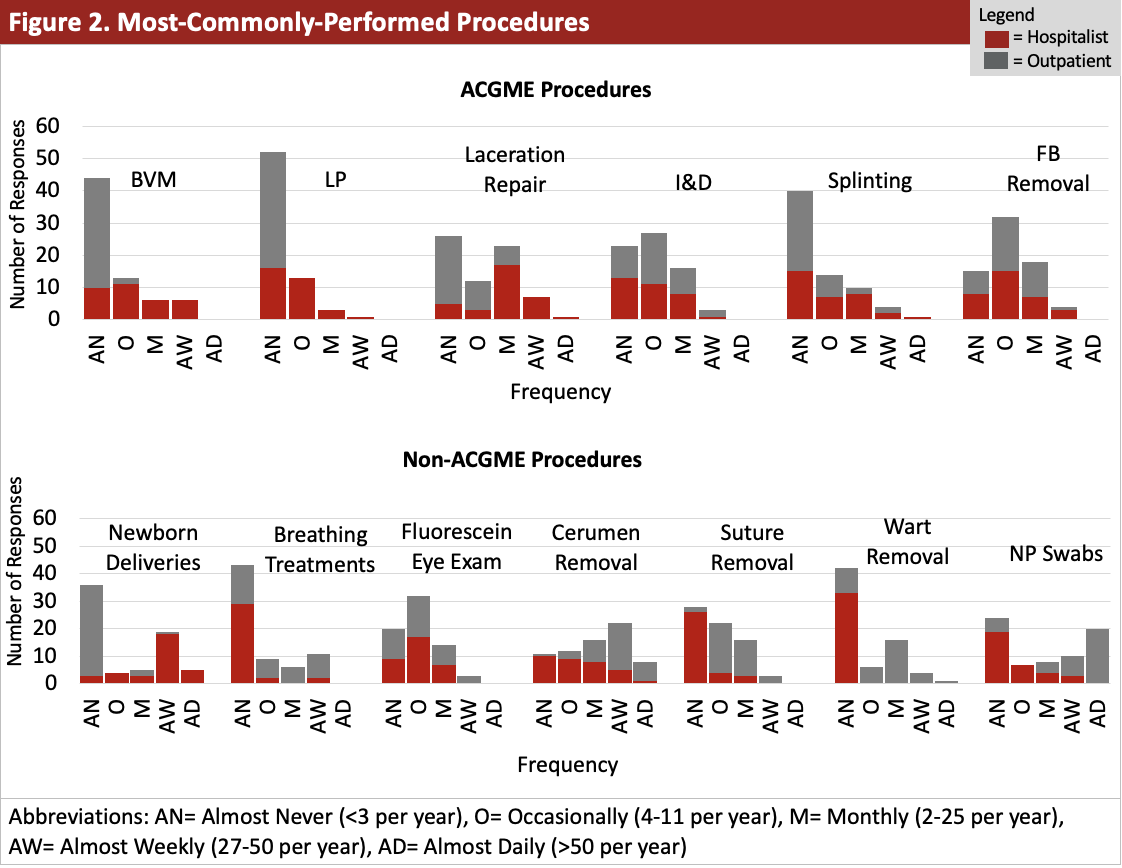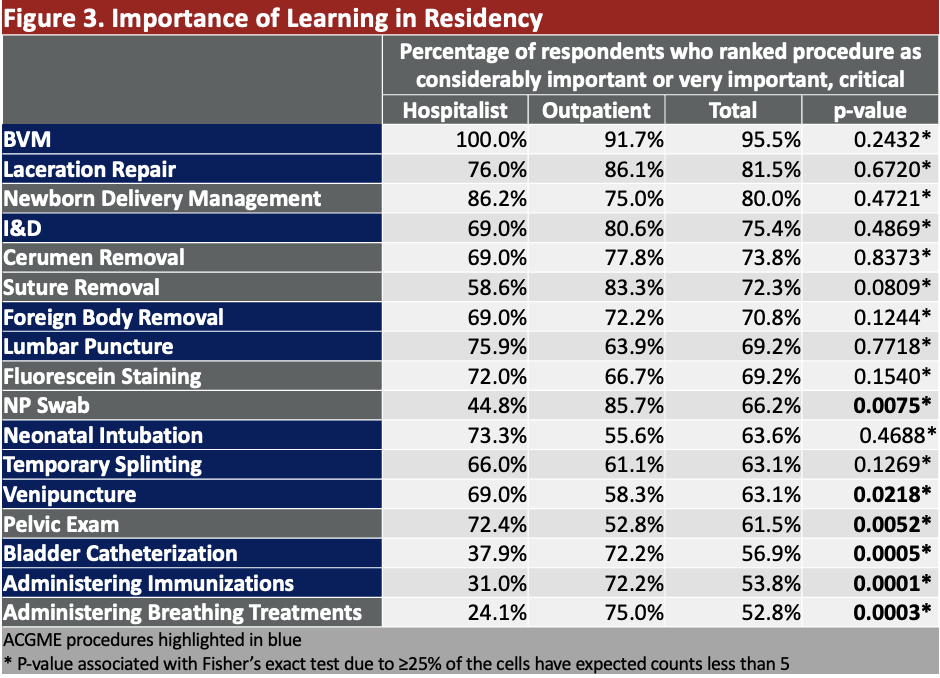Medical Education
Session: Medical Education 6
419 - A survey of procedural practice perspectives in pediatric hospitalists and general outpatient pediatricians in the St. Louis region
Saturday, May 4, 2024
3:30 PM - 6:00 PM ET
Poster Number: 419
Publication Number: 419.1168
Publication Number: 419.1168

Anne Marie Anderson, MD (she/her/hers)
Clinical Fellow in Pediatric Emergency Medicine
Washington University in St. Louis School of Medicine
Ballwin, Missouri, United States
Presenting Author(s)
Background: The American Council for Graduate Medical Education (ACGME) previously proposed removing 13 specific procedures from pediatric residency program requirements, leaving it to residency directors to determine which procedures are essential to master during residency. This change has sparked controversy among both pediatric generalists and subspecialists who feel that residents need standardized procedural training. Prior studies have evaluated outpatient pediatricians’ procedural practice, perceived importance, and training in the previously recommended 13 ACGME procedures. However, studies have not included pediatric hospitalists, nor have they surveyed on an expanded list of procedures.
Objective: The objective of the study was to determine the frequency of procedures performed by both general outpatient and hospitalist pediatricians, the importance of learning these procedures during residency, and the quality of residency preparation for these procedures.
Design/Methods: Electronic surveys were emailed to pediatric hospitalists within an academic health system and to general outpatient community pediatricians serving as clinical preceptors for pediatric residents. The survey included questions about the 13 ACGME procedures as well as an additional 7 emergent, 6 urgent, and 15 office-based procedures (Figure 1). Procedure frequency, importance of learning in residency, and quality of training were analyzed with Chi-square and Fisher’s exact testing. Procedures were categorized as most important to learn in residency if more than 50% of respondents ranked the procedure as “considerably important” or “very important, critical.”
Results: Survey response rate was 48% (33/69) for the pediatric hospitalists and 36% (36/100) for the general pediatricians. Although hospitalist and outpatient pediatricians rarely performed many procedures, 6 ACGME and 7 non-ACGME procedures were categorized as most-commonly performed (Figure 2). 10 ACGME procedures and 7 non-ACGME procedures were categorized as most important to learn in residency (Figure 3). Outpatient providers tended to perform office-based procedures more often and rank them more important for resident learning. Of the perceived most essential procedures, respondents identified significant gaps in their residency training in splinting, immunizations, bladder catheterization, and venipuncture.
Conclusion(s): The results suggest that procedural education is still valuable for pediatric residents, but there should be modifications to program requirements to reflect current procedural practice.



